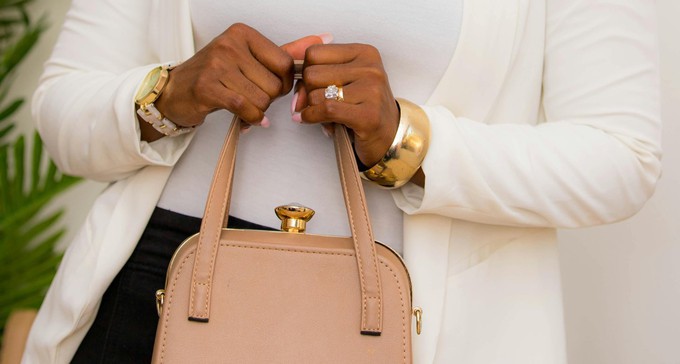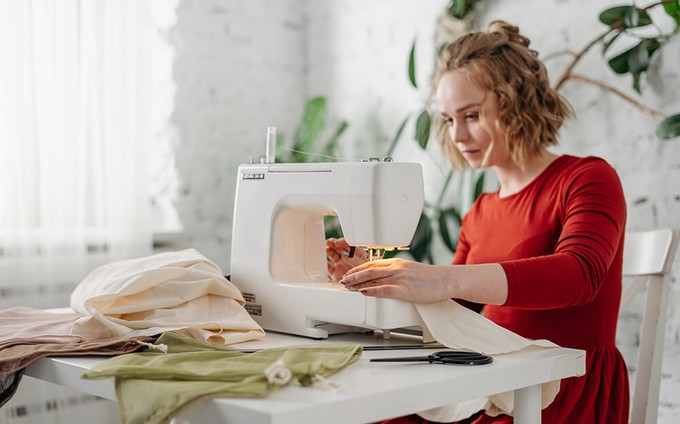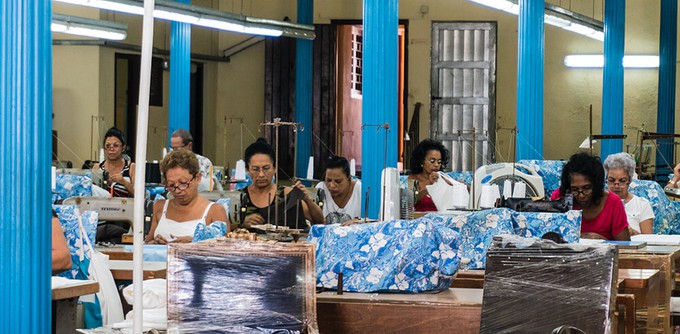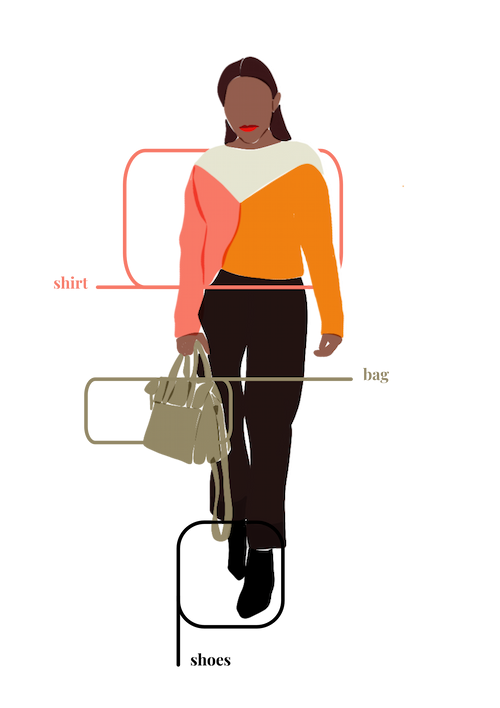- Clothes
- Bags
- Accessories
-
Inspiration
- Shoes
Is Sustainable Fashion Elitist? (Maybe It's The Wrong Question)

Fast fashion has a dreadful environmental footprint and keeps millions of people trapped in modern slavery conditions. Luckily, more and more consumers are waking up to the HIGH cost behind cheap clothes.
At the same time, though, the price tags of most ethical clothing brands are leading to a big question: is sustainable fashion elitist? Is it something that only the rich can afford?
Let’s look at it objectively (because there’s another question that we should ask ourselves).
Sustainable fashion can be elitist in some specific circumstances…

First of all, ethical fashion brands tend to be more expensive because they:
- Pay their workers fair wages
- Choose eco-friendly materials (which can be harder to source) and production processes
- Rely on smaller-scale production to reduce waste
- Often invest in third-party certifications to show that they are being as ethical as possible
Because their clothes are timeless and made to last, though, their cost-per-wear tends to be a lot lower than fast fashion.
For example, if you wear an ethical €50 jumper 20 times, its cost-per-wear is €2.5. A €15 fast fashion jumper that you only wear 3 times before it falls apart or goes out of style? €5.
However, we can’t ignore that:
- In some cases, being able to afford ethical clothes (and even having these conversations) is a privilege – Clothing poverty is a thing. If someone is living from paycheck to paycheck, it doesn’t matter if they can reuse that new eco-friendly and higher-quality jumper for years: we can’t expect them to fork out €50 to invest in it right now
- Ethical brands tend to be less size-inclusive – These brands have much lower budgets than fast fashion giants. So, unfortunately, when there isn’t enough demand to cover their higher upfront costs, they genuinely can’t afford to offer every single size. So, for some consumers, fast fashion clothes can be the only logical option
… but traditional fashion is more elitist most of the time!

This might sound controversial, but let me explain.
Fashion (and especially fast fashion) draws attention to what you’re lacking. That way, it keeps you unhappy and makes you feel unworthy, pushing you to make up for it by buying more clothes.
So, there are several reasons why we believe that fast fashion is more elitist than sustainable fashion:
- It compels you to always follow new trends
- It makes you feel like you shouldn’t be seen wearing the same outfit multiple times, whether that’s two days in a row or on more than one photo on your Instagram feed
- It promotes shopping as a social activity, which excludes anyone who can’t afford new clothes right now
- Its garments are designed to fall apart after a few wearings
- Its marketing plays on your insecurities, pushing you to buy new clothes to ‘belong’ and feel worthy
Basically, fast fashion depends on consumers being able to afford new clothes regularly. So—and that’s our main question—isn’t THAT elitist?
Even though the price tags themselves are low, it all adds up in the long run. No wonder the average consumer spends £500 on clothes every year!
The problem with using class solidarity to defend fast fashion

As mentioned before, I totally get it: not everyone can afford to buy new sustainable clothes from ethical brands.
But at the same time, I don’t believe we should use class solidarity as an ‘excuse’ to glorify fast fashion. Why?
- Fast fashion keeps poor and lower-income consumers trapped in that vicious cycle – Have you ever heard of the boots theory to explain socio-economic unfairness? When someone can only afford cheap and low-quality items, they end up having to pay a lot more money because they need to replace them periodically (for example, having to fork out €30 to buy new second-rate boots every year instead of €100 on a premium pair that would last them +10... spending over €300 in the long run!)
- Fast fashion clothes are usually made by garment workers who are mistreated, underpaid, and kept in modern slavery conditions – So, even when acknowledging that fast fashion is more accessible for lower-income people, it’s important to remember that it supports this exploitative system
When sustainable fashion is less elitist than traditional fashion
If you focus on:
- Choosing the most impressive and expensive brands as an alternative to fast fashion’s low prices
- Buying the same quantities of new clothes regularly but choosing eco-friendly materials
… then, sure: you can argue that sustainable fashion is elitist. But that’s NOT what sustainable fashion is actually about!
First of all, overconsumption is still problematic, even when those garments are made more ethically. Plus, luxury brands aren’t automatically sustainable, and they often use the same sweatshops as fast fashion brands (shocking, I know!).

Most importantly, though, the focus of sustainable fashion is completely different. It’s about:
- Starting with your own clothes: the most sustainable garment is the one that’s already in your wardrobe
- Buying less
- Seeing clothes as durable rather than throwaway
- Taking care of them to help them last longer
- Rewearing them at least 30 times and embracing repeat outfits
- Choosing second-hand and upcycled options whenever possible
- Buying more mindfully, supporting brands that align with your ethos and that treat their workers fairly (while choosing clothes you need and/or can see yourself wearing for years)
- Thinking beyond trends
- Prioritising clothes that match your style and make you happy whenever you (re)wear them
So, is sustainable fashion elitist?
We can’t ignore that, in some cases, being able to afford new ethical clothes is a privilege. However, we don’t believe that sustainable fashion per se is elitist.
In fact, when you look at it as a conscious lifestyle and mindset shift (= investing in fewer clothes more mindfully and rewearing them for years instead of feeling the need to buy new ones regularly)?
You could say that sustainable fashion is less elitist than traditional fashion.
Share our story
Related articles
How YOU Can Afford a Sustainable Wardrobe (& Save Money)
Ethical clothes cost more, but fast fashion latter is probably costing you a lot more money! So, here's how to afford a sustainable wardrobe [+ cheaper brands]
Cost Per Wear: What It Is & How It Makes Slow Fashion Cheaper
Ditch cheap fast fashion clothes, choose higher-quality ethical garments, and… save money in the long run! Here’s the difference that cost per wear makes.
Why Is Sustainable Fashion So Expensive? (& How It’s Cheaper)
To understand why sustainable fashion is so expensive, let’s see how it’s different from fast fashion. Spoiler alert: the latter has a terrible hidden cost!
Project Cece is a platform that collects ethical fashion from vetted brands and shops in one place. Browse ethical fashion for women and men and find items that fit your style, budget and values!

_large.png)


